Critical Thinking Normal History Worksheets for Ages 3-7
6 filtered results
-
From - To
Unlock your child's potential with our engaging Critical Thinking Normal History Worksheets designed for ages 3-7. Tailored for young learners, these worksheets foster essential thinking skills through fun, age-appropriate activities. Children explore historical concepts while developing reasoning, analysis, and problem-solving abilities. Each worksheet encourages creativity and inquisitiveness, making learning a delightful experience. Perfect for parents and teachers alike, these resources support early education in a playful way. Encourage your little ones to ask questions, make connections, and think critically about the world around them. Explore our collection now and inspire the thinkers of tomorrow!
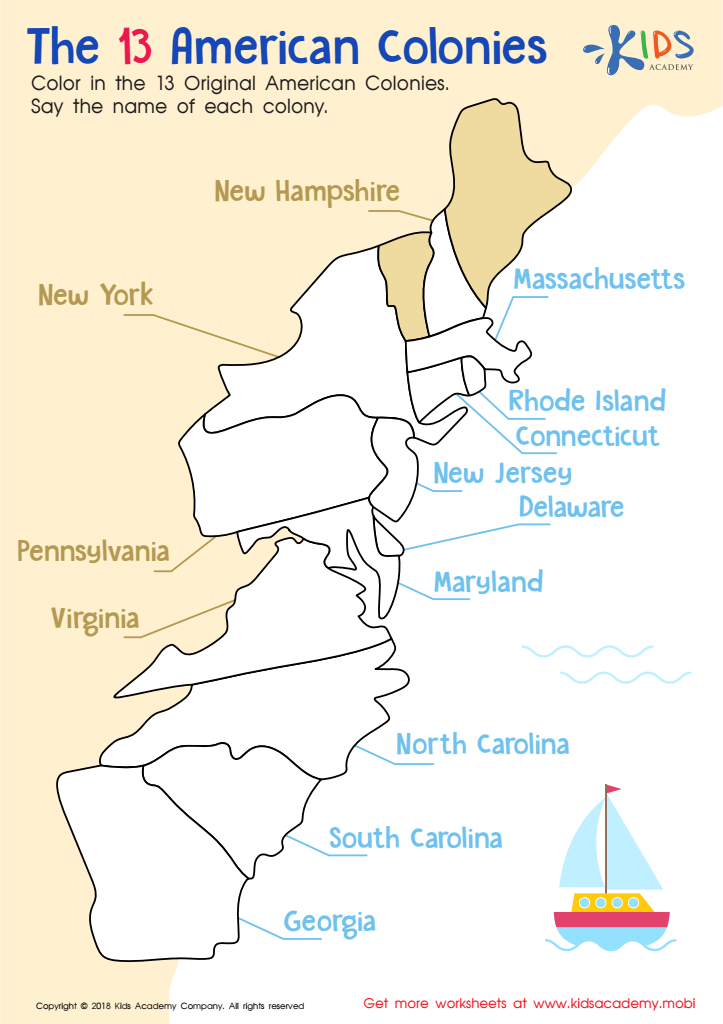

The 13 American Colonies Worksheet
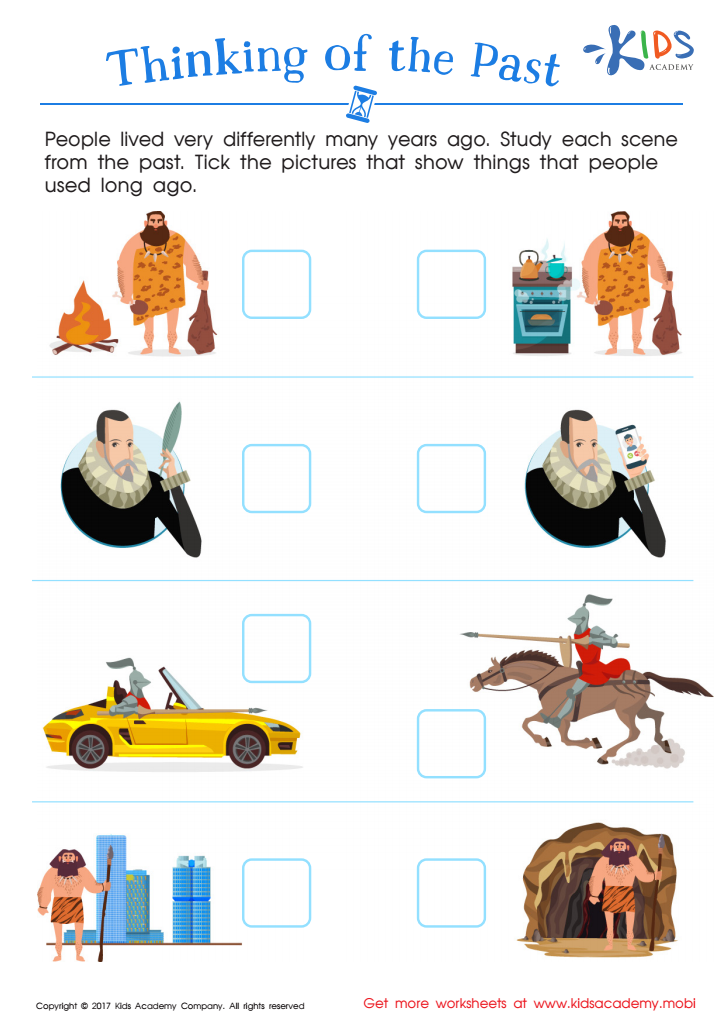

Thinking Past Printable
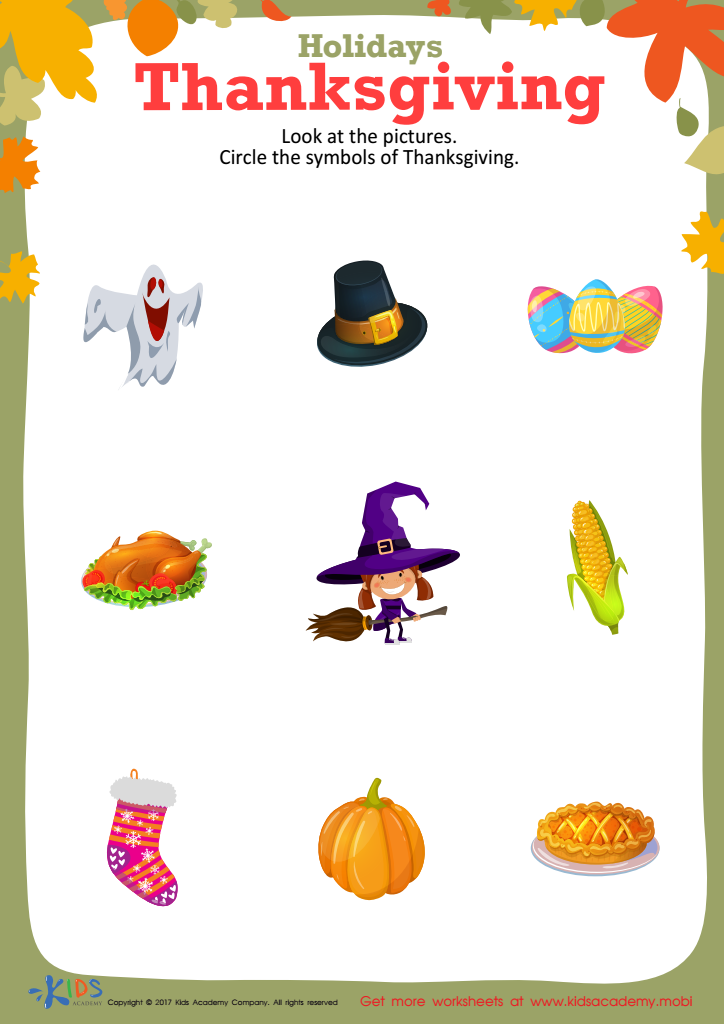

Thanksgiving Holiday Printable
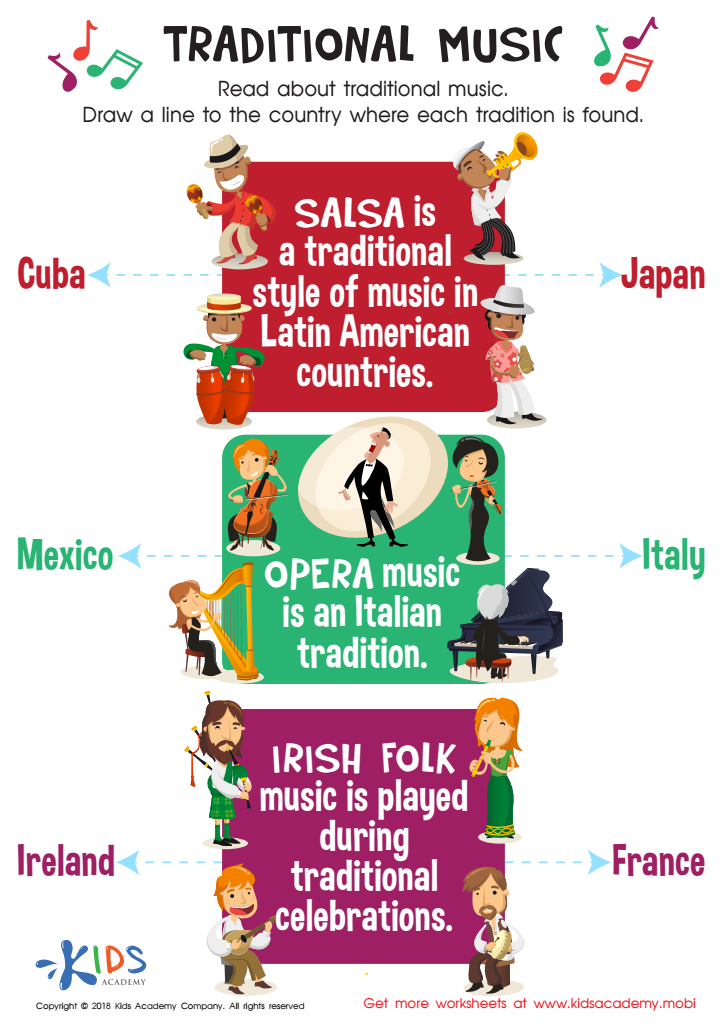

Traditional Music Worksheet
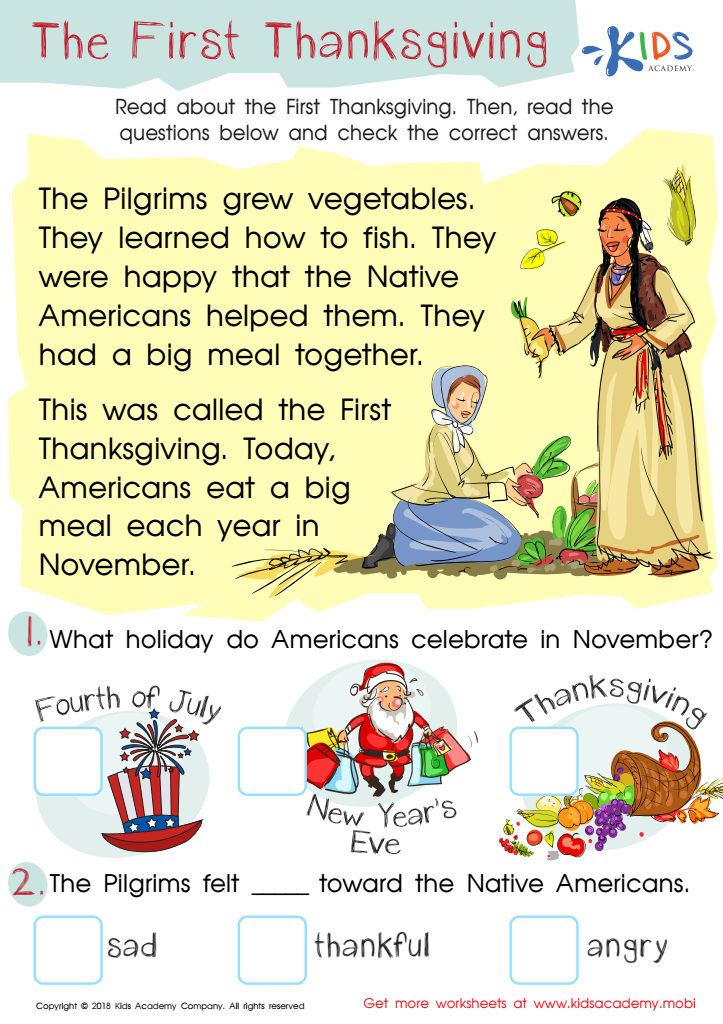

Assessment: First Thanksgiving Worksheet
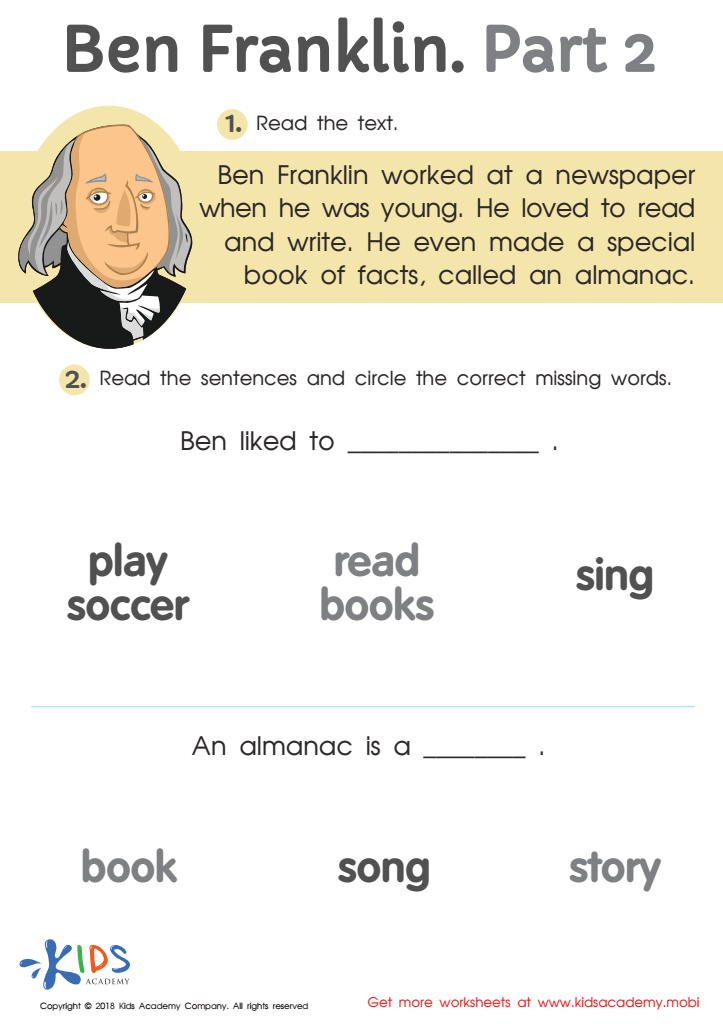

Ben Franklin Part 2 Worksheet
Critical Thinking Normal History refers to the approach of teaching historical concepts and narratives to young children in a way that fosters inquiry, reasoning, and analysis. For parents and teachers, nurturing critical thinking skills in children aged 3-7 is essential for several reasons.
Firstly, early exposure to critical thinking enhances cognitive development. At this age, children are naturally curious and eager to explore the world around them. By engaging them in discussions about history, teachers and parents can encourage curiosity and help children learn to ask questions, make connections, and differentiate between fact and opinion.
Secondly, understanding history equips children with context for the present. When children learn about past events, cultures, and figures, it broadens their perspectives and helps them understand societal structures and their roles within their communities. This foundational knowledge supports the development of informed and responsible citizens.
Moreover, fostering critical thinking prepares children for lifelong learning. As they grow, these skills will enable them to analyze information, evaluate sources, and make evidence-based decisions, crucial in today’s information-rich world.
In short, incorporating critical thinking into early historical education lays a strong foundation for intellectual growth, enhances problem-solving abilities, and fosters empathy and understanding, essential for personal and social development.
 Assign to My Students
Assign to My Students
















